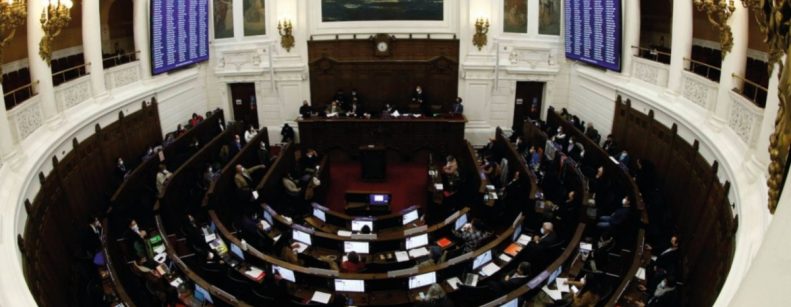
This week I had the privilege of conducting the webinar "Let's talk about Chile| New Constitution: The future of the country from a political and economic point of view".organized by our company and that had as guest the director of Horizontal, Juan José Obach. Our objective was, from a broad perspective, to comment on what, in our opinion, were the main political and economic aspects included in the new Constitution. the main political and economic aspects included in the draft and their potential consequences.. In this column I will not summarize the conversation, but rather highlight a way of evaluating the I will highlight a way of evaluating the text, which I found very interesting..
Our guest put the following questions on the table: (i) Is this a Constitution that unites us as a country?(ii) Is this a Constitution that improves the quality of our democracy?and (iii) Is this a Constitution that will allow the State to advance in social rights? This is not to say that these are the only relevant questions, nor that the evaluation of the Constitution has to consider only political and economic aspects, but for our purposes, it seems to us a good starting point.
The first question has to do with the genesis of this whole process.. The social outbreakwhich will take place on October 18, 2019, has causes that do not do not start with that increase of $30 per meter, but with other much deeperbut with other much deeper ones, dragged for a long time and that the country's elites were unable or unwilling to pick up. Given this fragmentation, it was considered that a new Magna Cartathat included all visions of the country, was a necessary condition to build a new social contract, in Rousseau's definition.
The second has to do with representation. Since the return of democracy the country has undergone several reforms, with better and worse results, trying to improve the distribution of power, so that, according to their preferences, each citizen would feel more or lessThe second has to do with representation. Since the return of democracy, the country has carried out several reforms, with better and worse results, trying to improve the distribution of power, so that, according to their preferences, each citizen would feel more or less heard at the time of decision making. Independently of our own evaluation of our electoral system and elected representatives, there was dissatisfaction on the part of an important part of the population.The system continued to over-represent certain groups (and under-represent others) and there was a conviction that this could be improved. This problem is also the subject of the Magna Carta..
And the third questionwell, it is a consequence of the citizens' "petition" of the demonstrations that accompanied the social outburst, which demanded better education, better health, better pensions, etc. In spite of the numerous educational reforms that have been made since the 90s, we have not been able to improve the quality of education, we have not been able to improve in the different international rankings to which we are submitted, occupying, for example, one of the last places in the OECD group of countries.. Moreover, this not only applies to state education, but also to private education, which is the best in the country, but is very poorly evaluated even compared to averages in other countries. In healthDespite being a system recognized as efficient when considering the resources injected into it, there is dissatisfaction with the results obtained in the health system, there is dissatisfaction with the results obtainedIn addition, there is the discrepancy that arises from the existence of two separate financing systems. Regarding pensionsThe general perception is that they are insufficient, despite the fact that the AFPs have done the work for which they were entrusted, since the average amounts paid are low. Despite the multiple commissions, reports and projects sent to Congress, the reform of the system was not carried out in a timely manner, the reform of the system was not done on time nor did it consider all the recommendations made.Are all of the above aspects the fault of the current Constitution? Probably not, but taking into account the political moment, it could have been a good time to at least talk about what we wanted, with what we had.
If you notice, I am not trying to answer these questions. Our guest, Juan José Obach, has his own answers and the reader may consider them valid in deciding how to vote on September 4.. But he might have a different evaluation, with other answers and/or other considerations. It simply seemed to me a good starting point to organize the debate and, thus, to make an informed decision in view of the exit plebiscite..